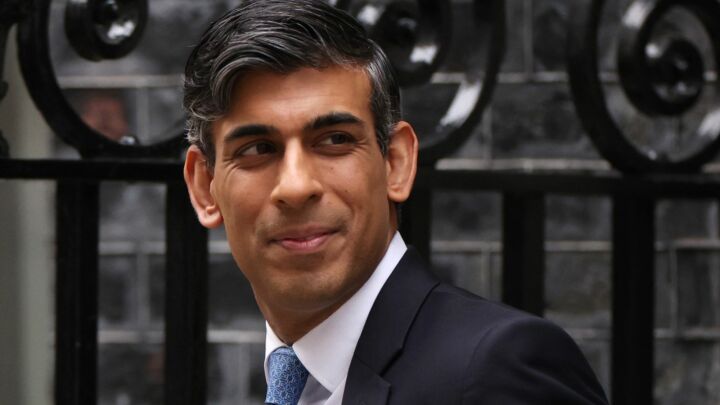The return of Remainer tyranny
The meddlesome House of Lords is still trying to neuter the Brexit revolt.

Want to read spiked ad-free? Become a spiked supporter.
The Irish writer Brendan Behan famously suggested that he had never seen a situation so dismal that it could not be made worse by the intervention of a policeman. Applying the same principle to British democracy, we might say that there has never been a law so bad that it could not be made worse by the interference of the House of Lords.
The latest example is the parliamentary bunfight over the Tory government’s Retained EU Law (Revocation and Reform) Bill. Having been passed by elected MPs in the House of Commons, the proposed law faced stiff opposition from unelected peers when they started debating it in the Lords on Monday night.
The Retained EU Law Bill is intended to help clear thousands of leftover EU laws and regulations from Britain’s post-Brexit statute book. As such, it represents a rare step towards fulfilling the Brexit promise of ‘taking back control’, by ridding us of rules handed down from Brussels, which were never scrutinised or voted on by the UK parliament. Members of the House of Lords, however, object that the bill would hand too much power to government ministers, with too little parliamentary scrutiny. A gaggle of senior peers spelt out their concerns in a letter published before the Lords debate, in Monday’s edition of The Times.
If the proposed law is passed, they wrote, ‘parliamentarians’ such as them ‘at best are bystanders, as the executive would be the sole body deciding the fate of thousands of well-established rights’. The peers pledged that they would ‘collectively speak up for democracy’ and for ‘ensuring democratic accountability’ by seeking to amend the bill in the Lords.
Even by the entitled standards of Westminster’s upper house, this looks like an outstanding example of bare-faced patrician chutzpah. Since when did a clique of appointed peers become defenders of ‘democracy’ against the elected government?
They tried to blur this clear-cut issue of democracy by complaining about ‘parliamentarians’ being sidelined, thereby eliding MPs elected by the people with lords who were handed their seats without winning a single vote.
We are even expected to applaud the ermine-clad elitists in the Lords as champions of women’s and workers’ rights, which they claim the Tories will dump along with EU rules. They also think us stupid enough to welcome the notion that ‘democratic accountability’ will be safe in their entirely unaccountable hands.
The top peers who signed that Times letter might have tried to hide their true intentions behind high-minded talk of democracy. But they are mostly the usual suspects: hardcore Remainers all, such as former Conservative chancellor Ken Clarke, ex-governor of Hong Kong Chris Patten and former Blairite minister Peter Hain.
These people have spent the past six-and-a-half years striving to obstruct or overturn the mass democratic vote to leave the EU. Trying to block the Retained EU Law Bill is just the Remainer establishment’s latest rearguard action to neuter the Brexit revolt.
In the end, however, the issue here is even bigger than Brexit. It is not about the political identity of the individual peers involved. Because nobody is a ‘fit and proper person’ to sit in the unelected House of Lords and try to interfere with the laws that govern our supposedly free and democratic society.
The peers who signed that Times letter included a churchman, the Bishop of Leeds. The presence of bishops in the House of Lords often excites particular attention from secularists, who scoff that the UK is the only other country apart from the Islamic Republic of Iran to appoint clerics to its legislature. Fair enough. But why single out the bishops for derision? Why should a peer appointed to the Lords by the leaders of the Tory or Labour party be considered any more legitimate a legislator than a bishop allegedly anointed by God?
In truth, the 800-plus appointed peers entitled to vote on our laws in the House of Lords are every bit as undemocratic as the hereditary lords they replaced. Indeed, in some ways, they are worse than the idle old aristocrats. Today’s upper house is filled with former, failed and sometimes fraudulent politicians. The worst offenders are not the idlers who claim their generous allowances and expenses while doing nothing, but rather those politically active peers, like the letter signatories, who work hard to interfere with the democratic process.
There is a potential danger with the Retained EU Law Bill – not that it goes ‘too far’, but that it doesn’t go nearly far enough. All the scaremongering about workers’ and women’s rights being scrapped is a Remainer smokescreen. Those rights were not gifted to the British people by the generosity of our former EU overlords. They were hard won by the people themselves through long years of struggle, and will not be binned along with EU rules.
No, the danger is that, even if the bill gets through parliament intact, the spineless Tory government will fail to act on it, allowing the Remainer-dominated civil-service blob and the courts to continue enforcing EU rules.
Of course it is true that ministers and the rest of the executive arm of government have far too much unaccountable power. That is due, not to any bill, but to the entire British constitution. The constitutional device of the crown prerogative often allows His Majesty’s Government to rule like a medieval monarch in the name of the king. But empowering the equally antiquated and anti-democratic House of Lords is hardly the solution. The Lords is part of the same system, and should be abolished along with the powers of the crown.
Even if they were sensible, the peers’ objections to the Retained EU Law Bill would be beside the point. The truth is that those of us who believe in democracy put no store by the House of Lords. Give us a ‘bad’ law passed by elected representatives to a ‘good’ one amended by the lords spiritual and temporal. To paraphrase the late Tony Benn, as he objected to the Maastricht Treaty that created the European Union, some people really might prefer a good king to a bad parliament, but we democrats don’t. At least we can always vote the latter out of power.
Remainer peers dressing up as champions of ‘democratic accountability’ are just anti-democrats in drag. They complain about being reduced to powerless ‘bystanders’ of the parliamentary process. Speed the day.
Mick Hume is a spiked columnist. The concise and abridged edition of his book, Trigger Warning: Is the Fear of Being Offensive Killing Free Speech?, is published by William Collins.
Picture by: Getty.
Celebrate 25 years of spiked!
A media ecosystem dominated by a handful of billionaire owners, bad actors spreading disinformation online and the rich and powerful trying to stop us publishing stories. But we have you on our side. help to fund our journalism and those who choose All-access digital enjoy exclusive extras:
- Unlimited articles in our app and ad-free reading on all devices
- Exclusive newsletter and far fewer asks for support
- Full access to the Guardian Feast app
If you can, please support us on a monthly basis and make a big impact in support of open, independent journalism. Thank you.







Comments
Want to join the conversation?
Only spiked supporters and patrons, who donate regularly to us, can comment on our articles.